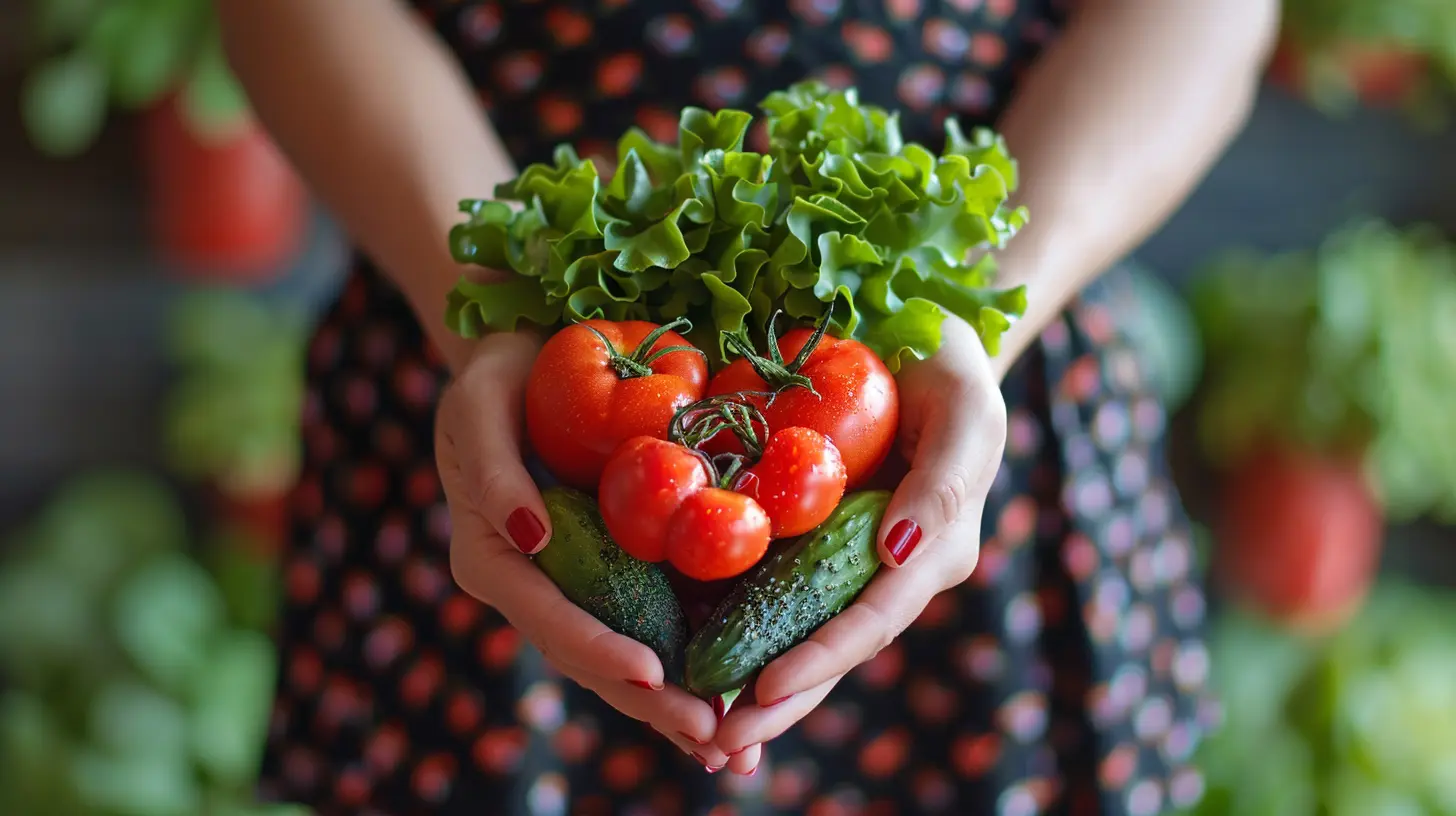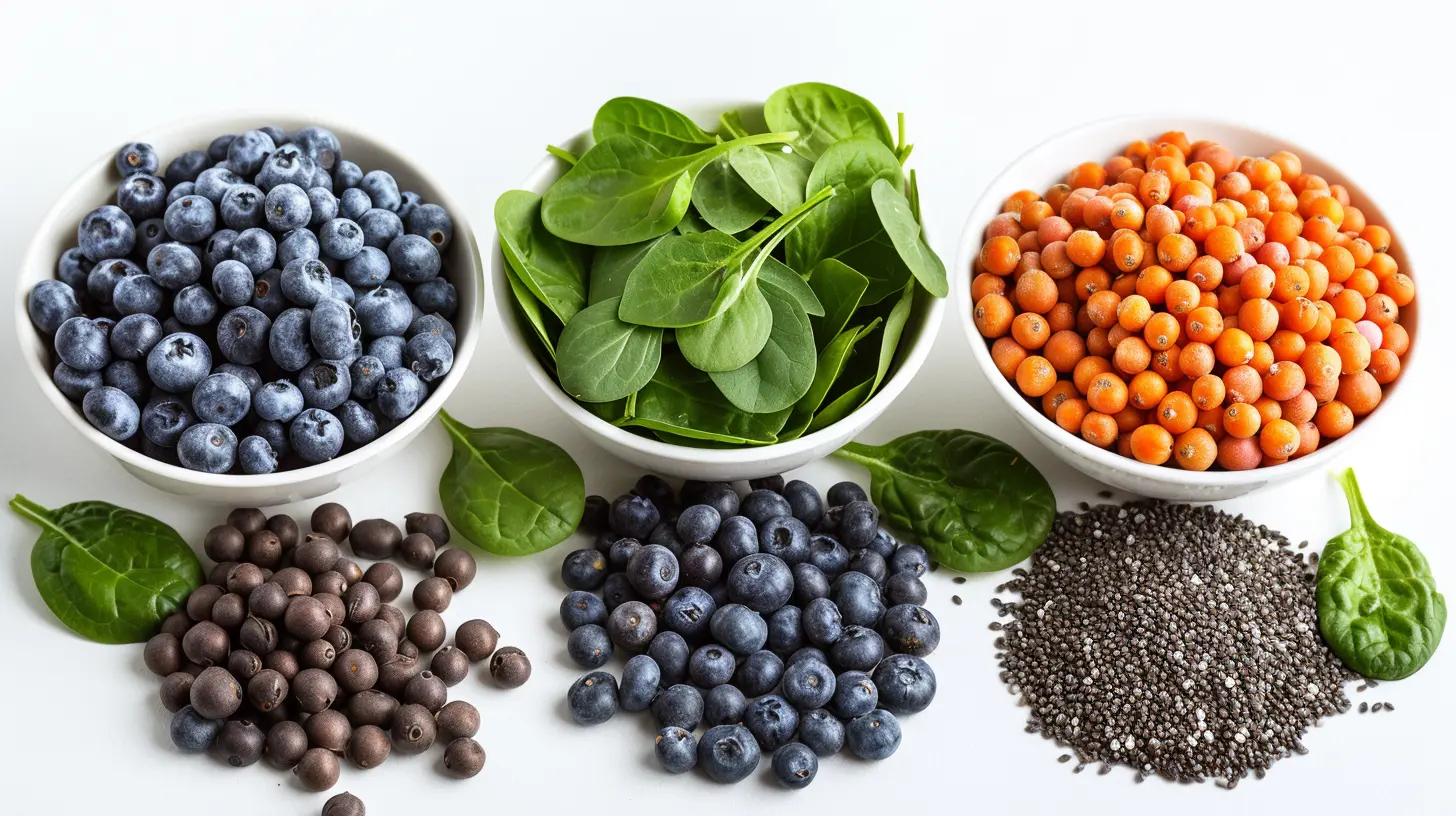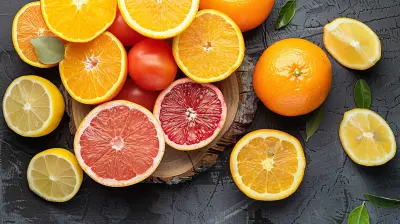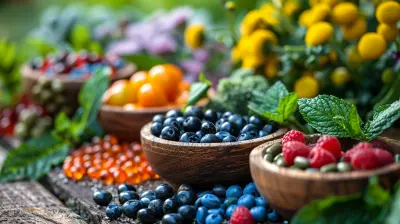Essential Nutrients for Women's Health
17 October 2025
Let’s face it—life’s a rollercoaster, and as women, we wear so many hats. Whether you're crushing it at work, managing your home, juggling relationships, or growing a tiny human inside you (yep, moms, we see you), your body needs the right fuel to keep all systems running smoothly.
That fuel? Nutrients. But not just any nutrients—the kind that support your unique health needs. From hormonal balance to bone strength to energy levels that don’t crash halfway through the day, getting the right mix of vitamins and minerals can make a world of difference.
In this guide, we’re diving deep into the essential nutrients for women’s health. We’ll break it all down so it’s easy to understand—and even easier to start applying to your everyday life. Ready to feel your best? Let’s jump in.
Why Women’s Nutritional Needs Are Different
Okay, quick reality check—our bodies aren’t one-size-fits-all. Women go through some significant phases: puberty, menstruation, pregnancy, breastfeeding, and menopause. These transitions mess with hormone levels, metabolism, and nutrient demands.Think of it like maintaining a high-performance sports car—you wouldn’t fill it with low-grade fuel and expect it to win races, right? Your body deserves high-quality nutrients, especially during these stages of life.
So, what’s on the must-have list? Let’s break down the MVPs of women’s nutrition.
1. Iron – The Energy Booster
Ever feel constantly tired, even after a full night’s sleep? You might be low on iron—and you wouldn’t be alone. Women, especially premenopausal ones, are more prone to iron deficiency due to monthly blood loss from periods.Why It’s Important:
Iron is crucial for producing hemoglobin, the protein in red blood cells that transports oxygen throughout your body. Without enough iron, your cells go oxygen-hungry, and you feel wiped out.Best Sources:
- Red meat (in moderation)- Spinach and kale
- Legumes (like lentils and chickpeas)
- Iron-fortified cereals
Tip: Pair iron-rich foods with vitamin C (hello, oranges!) to help your body absorb it better.
2. Calcium – For Strong Bones and More
Ladies, it’s no secret—we’re more prone to osteoporosis, especially post-menopause. That’s why calcium isn’t just important; it’s absolutely essential.Why It’s Important:
Calcium isn't only for building strong bones and teeth—it also plays a role in muscle function, nerve signaling, and keeping your heart rhythm steady.Best Sources:
- Dairy products (milk, yogurt, cheese)- Leafy greens (bok choy, broccoli)
- Fortified plant-based milks
- Almonds and sesame seeds
Fun Fact: After age 30, your bones slowly start losing density. Calcium helps slow that process down. So yeah, don't skimp on it!
3. Vitamin D – The Sunshine Vitamin
Think of vitamin D as calcium's partner in crime. Without enough vitamin D, calcium doesn’t get absorbed properly—and your bones pay the price.Why It’s Important:
Beyond bone health, vitamin D helps regulate mood and supports your immune system. Low levels have even been linked to depression.Best Sources:
- Sunshine (15–20 minutes a day can do wonders)- Fatty fish (salmon, tuna)
- Fortified dairy and plant milks
- Supplements (especially in winter months)
Heads Up: Many women are deficient and have no idea. A simple blood test can reveal if you need a boost.
4. Folate – The Fertility Friend
Even if you’re not planning on having kids anytime soon, folate (or its synthetic form, folic acid) is still important.Why It’s Important:
Folate supports healthy cell division and is critical in pregnancy to prevent neural tube defects. But outside of baby-making, it also helps with DNA synthesis and red blood cell formation.Best Sources:
- Dark leafy greens (spinach, Swiss chard)- Avocados
- Citrus fruits
- Beans and peas
- Fortified grains
Pregnant or not, folate is a non-negotiable nutrient for every woman.
5. Magnesium – The Calmness Commander
Stressed? Can’t sleep? Muscles cramping up? You might be low on magnesium.Why It’s Important:
Magnesium is involved in over 300 biochemical reactions in your body—including nerve and muscle function, blood pressure regulation, and, yes, keeping stress at bay.Best Sources:
- Pumpkin seeds- Dark chocolate (you’re welcome!)
- Whole grains
- Bananas
- Nuts like almonds and cashews
Extra perk: Magnesium also helps reduce PMS symptoms. Total win!
6. Omega-3 Fatty Acids – The Inflammation Fighters
Omega-3s are your body’s internal firefighters—especially when it comes to heart health, brain function, and reducing inflammation.Why It’s Important:
These healthy fats support everything from mood regulation to joint health, and they’re especially beneficial for women during pregnancy and perimenopause.Best Sources:
- Fatty fish (salmon, sardines, mackerel)- Flaxseeds and chia seeds
- Walnuts
- Algae oil (a vegan source!)
Don’t love fish? No biggie—just opt for a high-quality omega-3 supplement.
7. Vitamin B12 – The Brain Booster
Feeling foggy or forgetful? B12 might be the missing puzzle piece, especially if you follow a vegetarian or vegan diet.Why It’s Important:
B12 supports nerve function, helps produce DNA, and aids in red blood cell formation—basically, it’s a busy bee inside your body.Best Sources:
- Meat (beef, poultry)- Eggs
- Dairy products
- Fortified plant-based foods
Vegans, this one’s extra important—make sure you’re getting your B12 from fortified foods or a supplement.
8. Iodine – The Thyroid Supporter
Iodine might not be on your radar, but it plays a vital role in regulating your metabolism and supporting your thyroid.Why It’s Important:
Your thyroid gland needs iodine to produce hormones that control everything from energy levels to menstrual cycles.Best Sources:
- Iodized salt- Seaweed
- Seafood
- Eggs
Bonus Tip: If you’re pregnant or breastfeeding, your iodine needs go up—chat with your doc about supplementation.
9. Zinc – The Immunity Enhancer
No one likes getting sick, and zinc helps your immune system stay on high alert.Why It’s Important:
Zinc supports immune function, helps heal wounds, and plays a role in cell growth and repair. It’s also essential for maintaining your sense of taste and smell.Best Sources:
- Shellfish (especially oysters)- Beef and chicken
- Legumes
- Whole grains
Heads-up: Overdoing zinc can cause nausea. Stick to recommended amounts unless your doctor advises otherwise.
10. Fiber – The Gut’s Best Friend
Let’s talk about something we all do but rarely discuss—pooping. Yep, your digestive system needs fiber to keep things moving.Why It’s Important:
Fiber helps with digestion, keeps you regular, supports heart health, and even helps regulate blood sugar levels.Best Sources:
- Whole grains (oats, brown rice)- Vegetables and fruits (berries are fiber powerhouses!)
- Beans and lentils
- Chia and flax seeds
Aim for about 25 grams of fiber a day. Your gut will thank you.
Putting It All Together
Now, before you panic and start gulping down a dozen supplements, here’s the deal: real food should always be your first go-to. Focus on a colorful, varied diet packed with whole foods, and you’ll naturally hit most of your nutrient goals.But let’s be honest—life gets hectic, takeout happens, and sometimes supplements fill in the gaps. Multivitamins designed specifically for women can be a smart addition, especially during key life phases like pregnancy or menopause.
Always check with your healthcare provider before starting anything new, though. Your body is unique, and so are your needs.
Quick Nutrient Checklist by Life Stage
Teens & Young Women:
- Iron- Calcium
- Folic Acid
- Vitamin B complex
Pregnant or Breastfeeding:
- Folate/Folic Acid- Iron
- Omega-3s
- Iodine
- Vitamin D
40s and Menopause Transition:
- Calcium- Vitamin D
- Magnesium
- Omega-3s
- Fiber
Postmenopausal Women:
- Calcium- Vitamin D
- B12
- Magnesium
- Fiber
Final Thoughts
Your health isn’t something to put on the back burner. The nutrients you feed your body today set the tone for how energetic, focused, and resilient you’ll feel tomorrow—and years down the line.So, let food be your first form of self-care. Treat your body with love and nourish it intentionally. Because when women feel good in their bodies… we run the world.
all images in this post were generated using AI tools
Category:
Healthy EatingAuthor:

Arthur McKeever
Discussion
rate this article
1 comments
Phaedra Wright
Essential nutrients play a pivotal role in women's health, supporting everything from reproductive function to bone density. Prioritizing a balanced diet rich in vitamins, minerals, and healthy fats can empower women to maintain optimal health and prevent chronic illnesses throughout their lives.
October 18, 2025 at 2:43 AM

Arthur McKeever
Thank you for highlighting the crucial role of essential nutrients in women's health! A balanced diet truly is key to supporting overall wellness and preventing chronic conditions.


